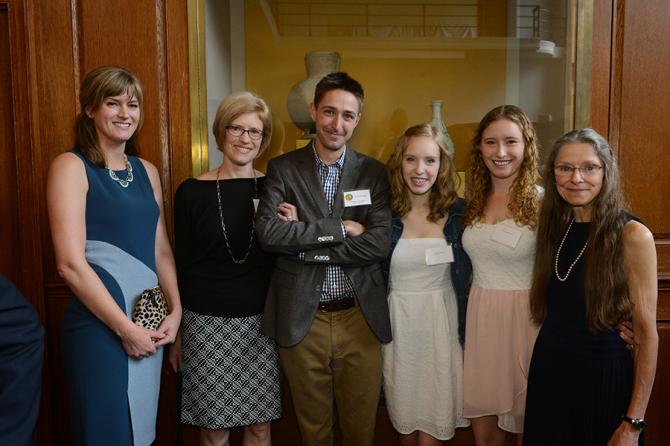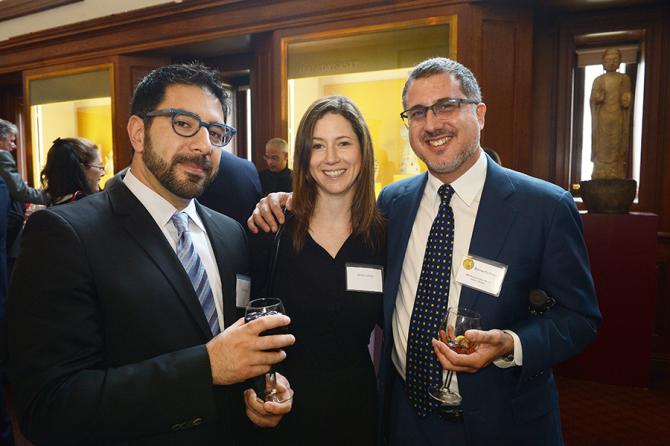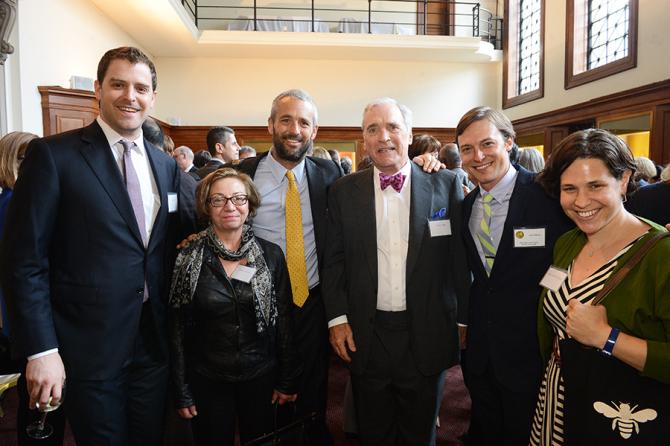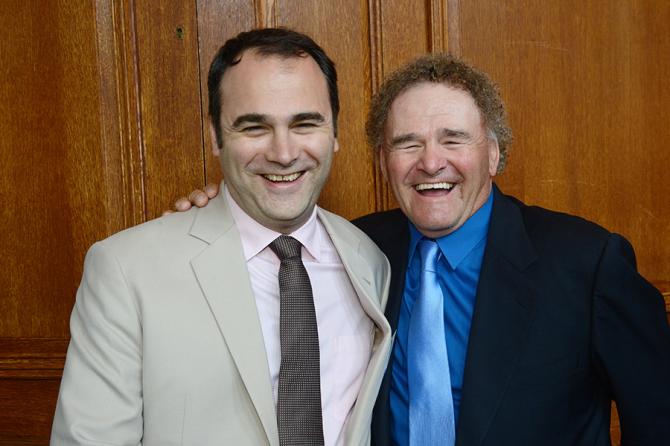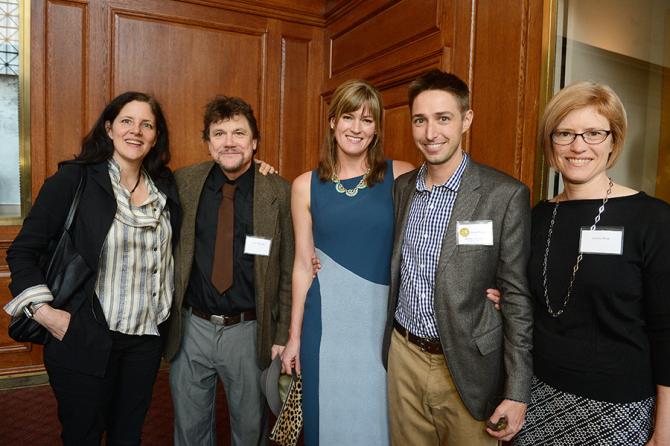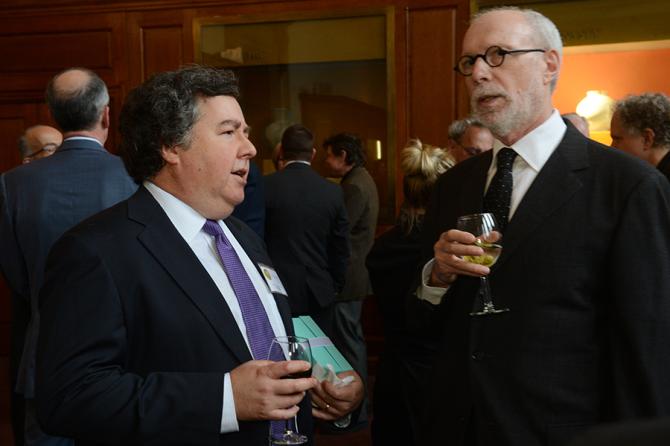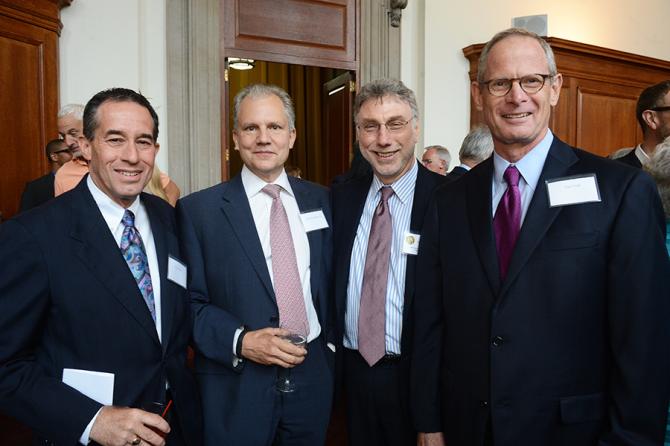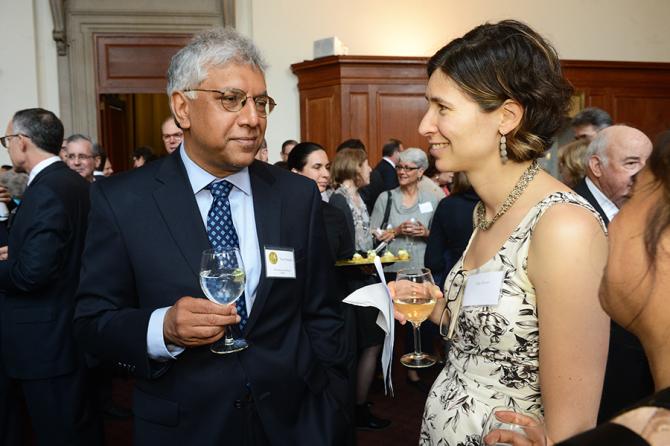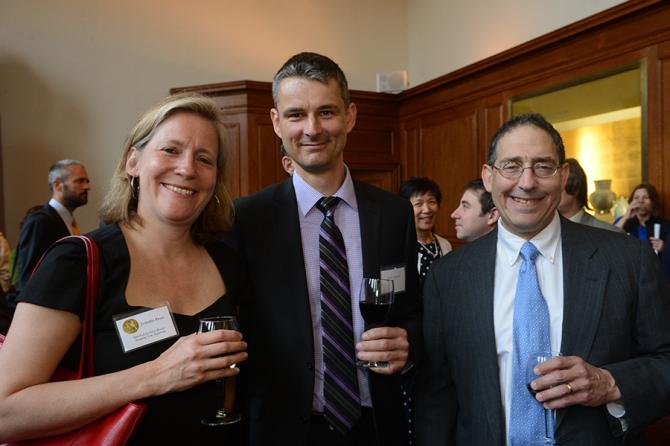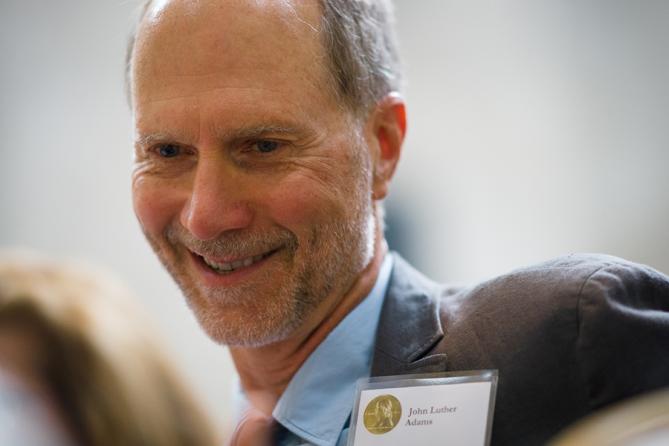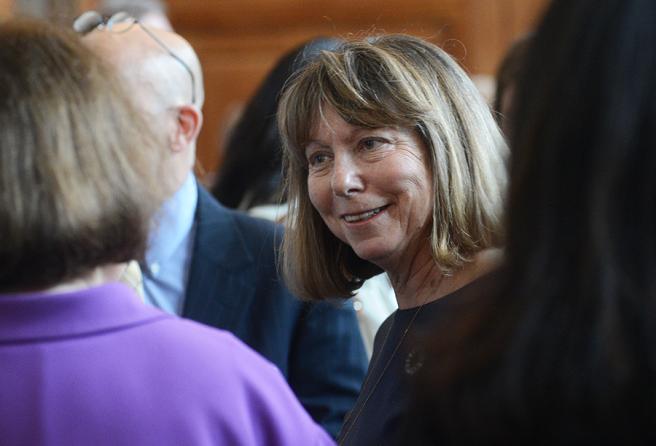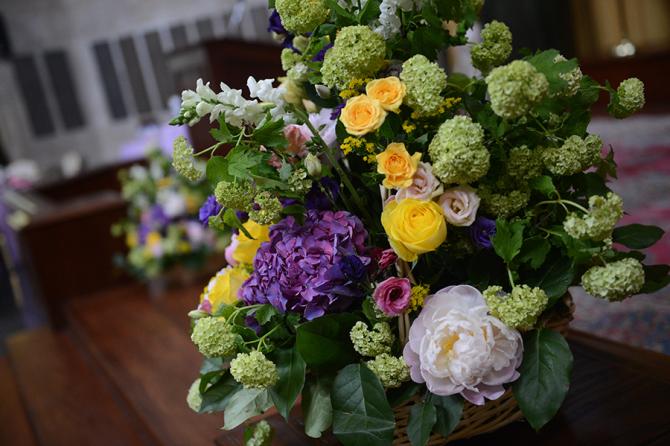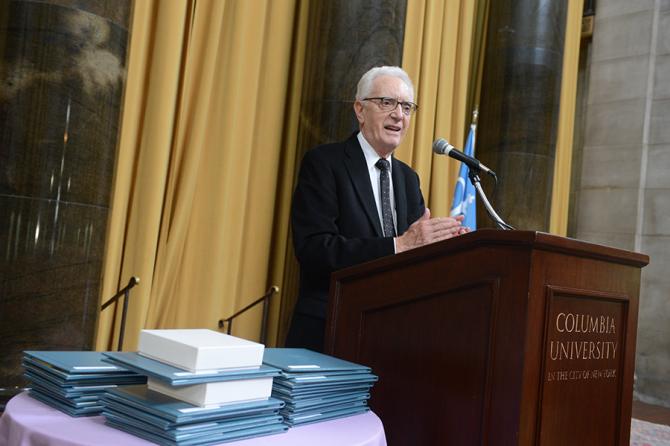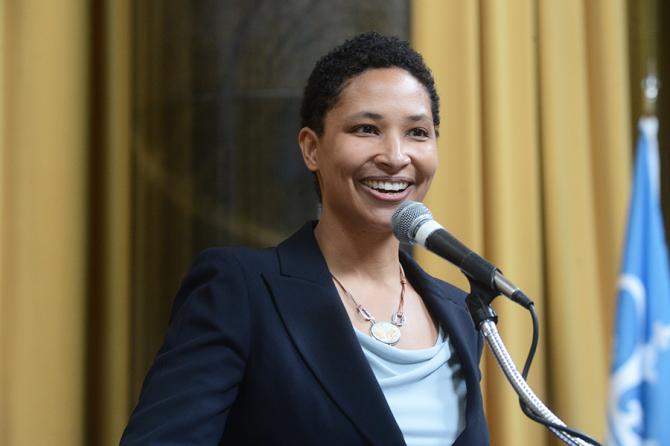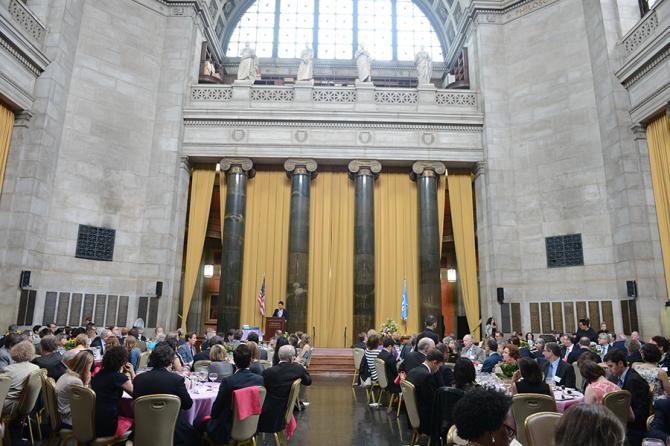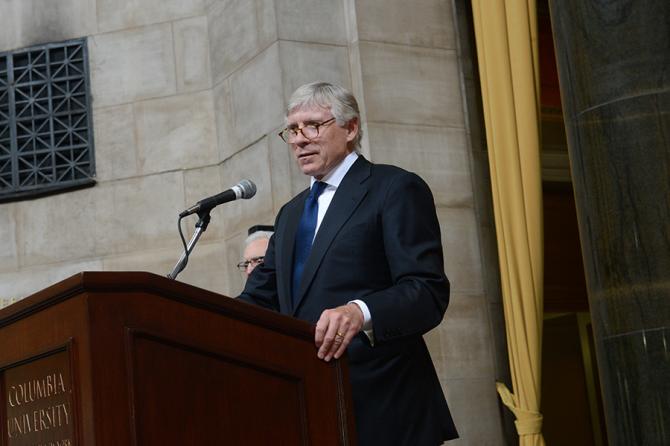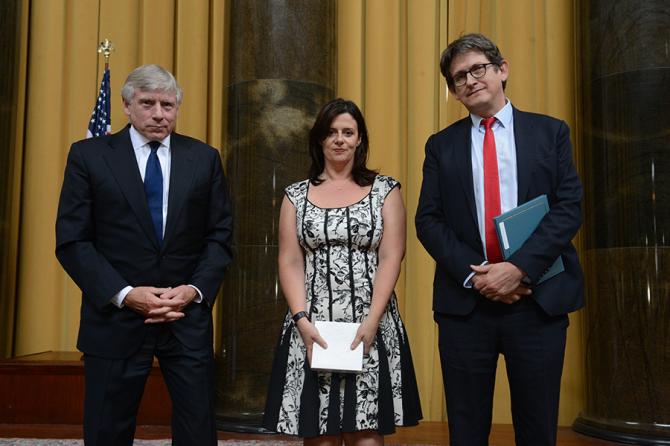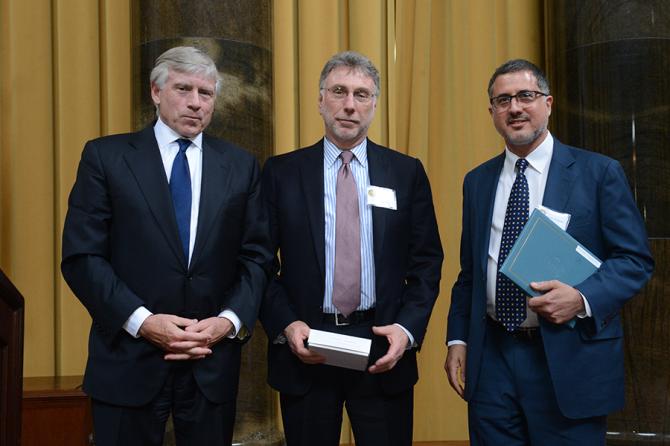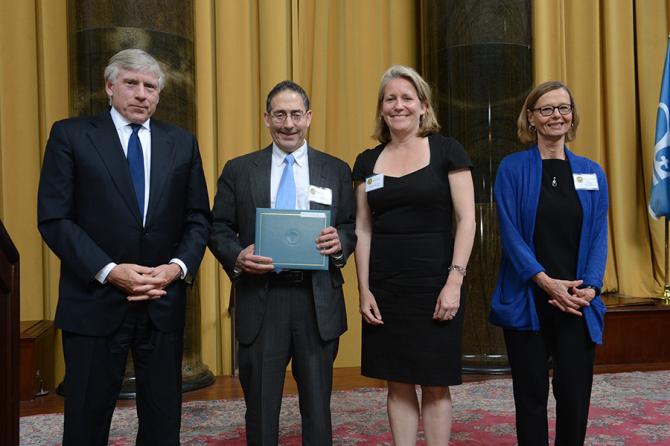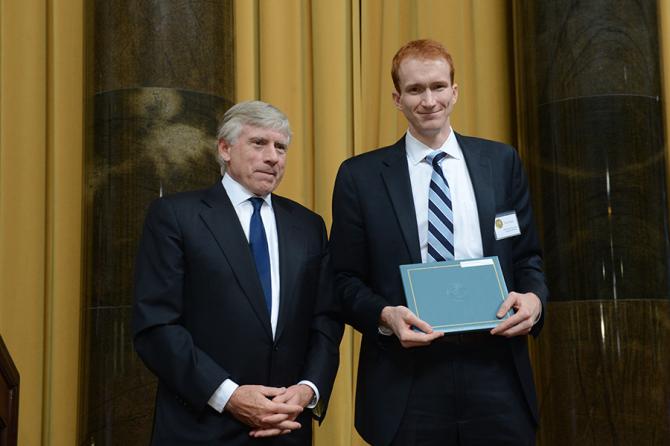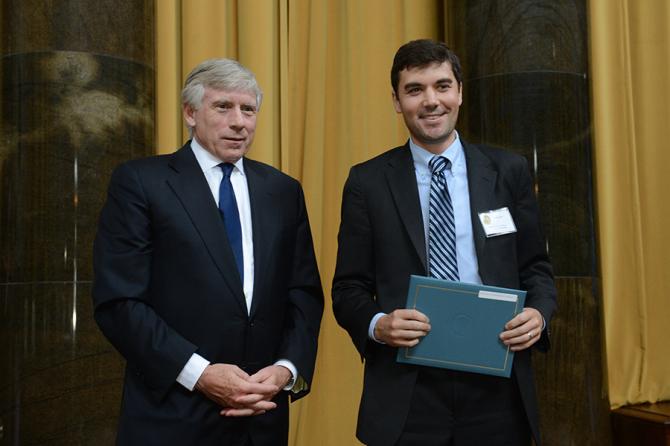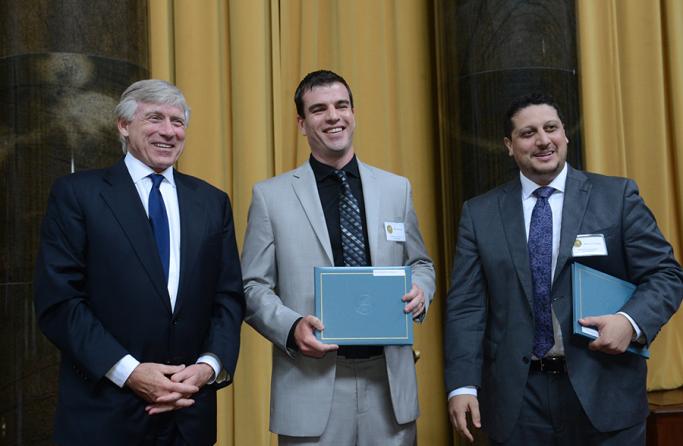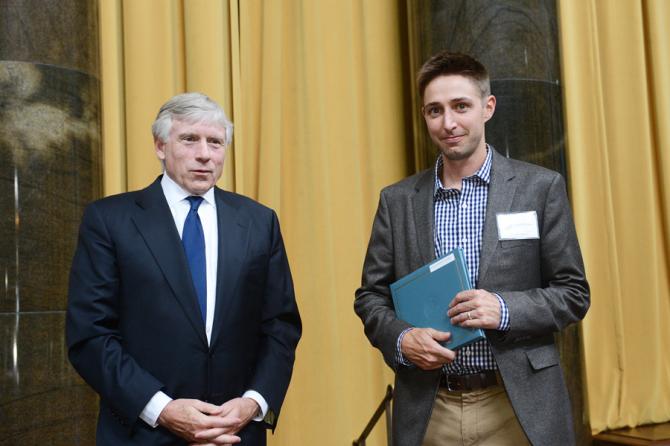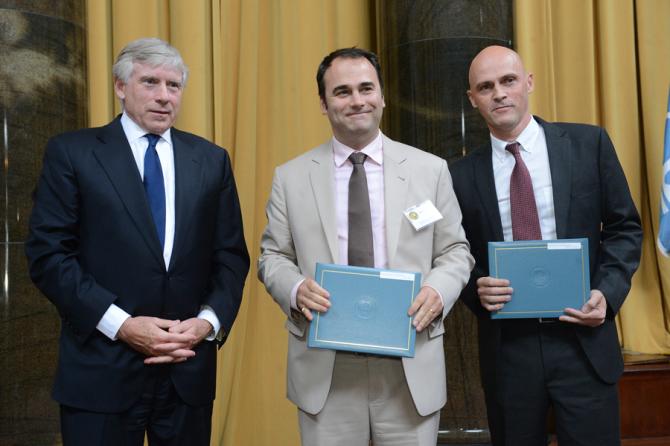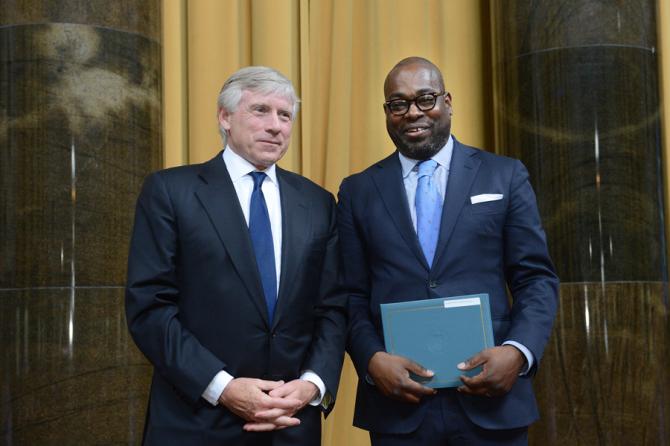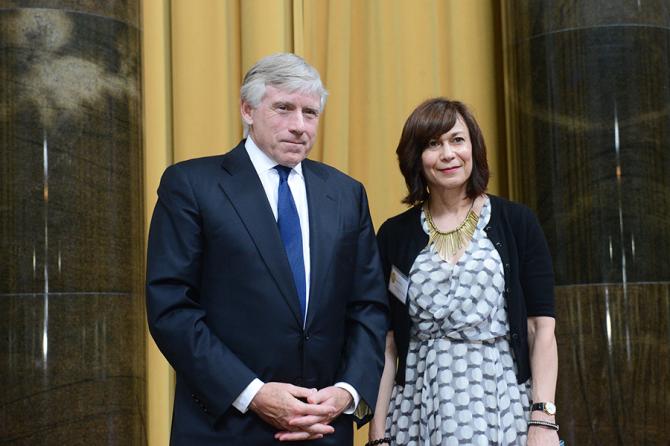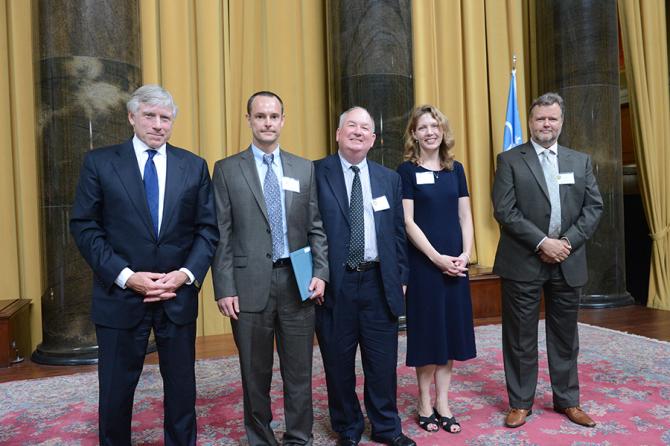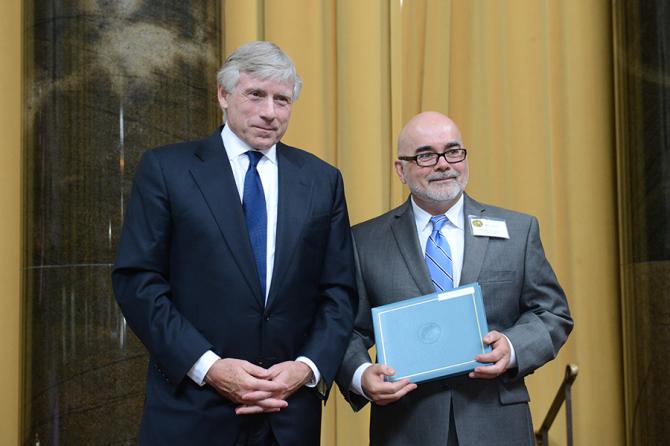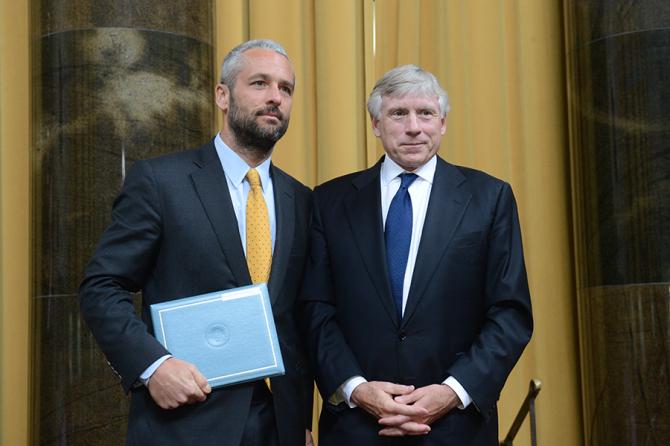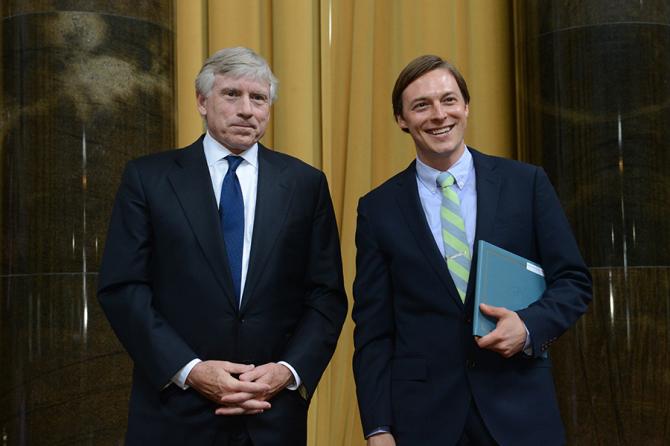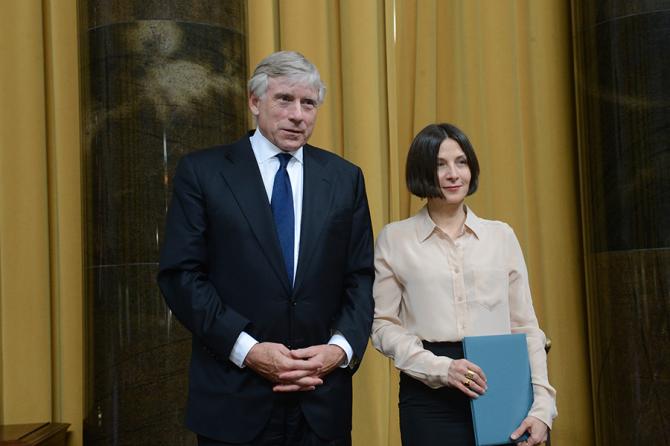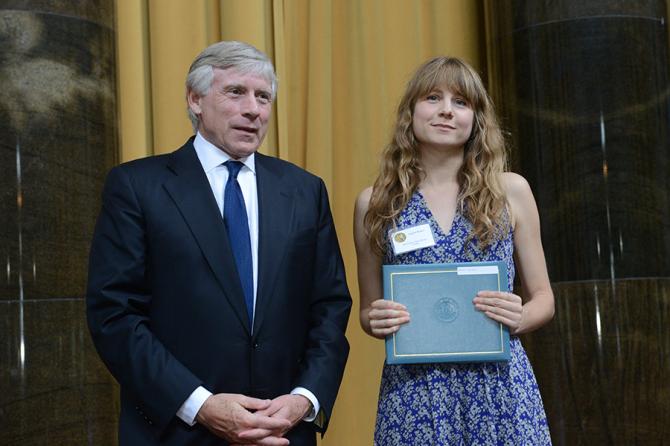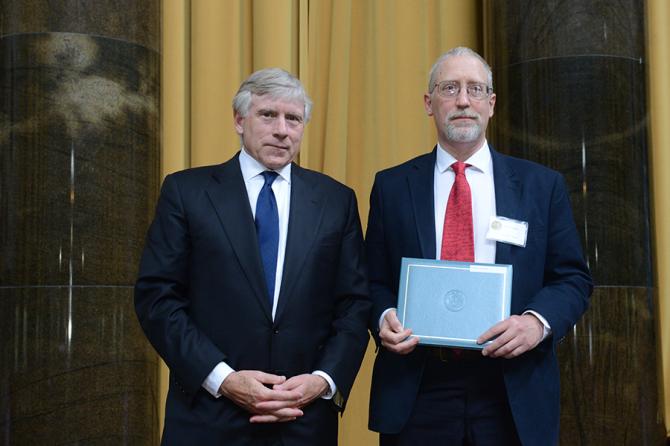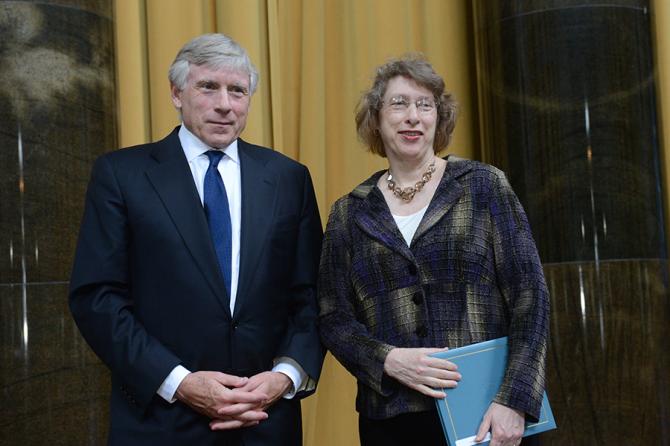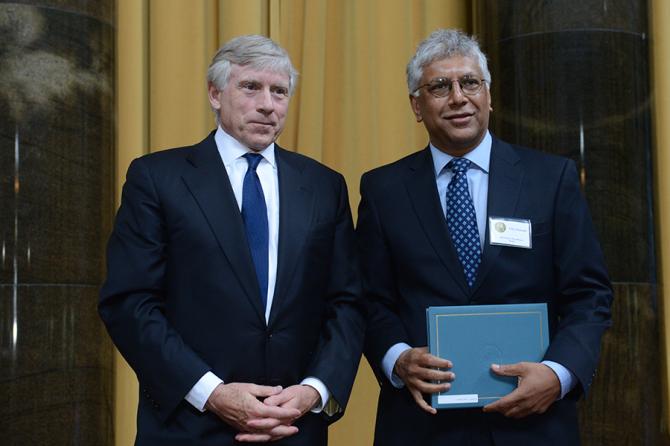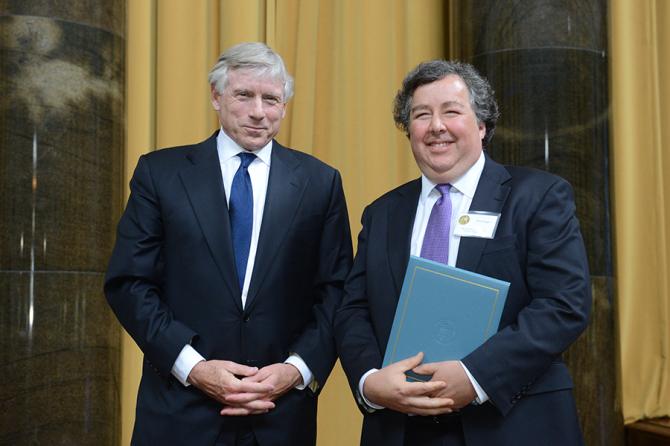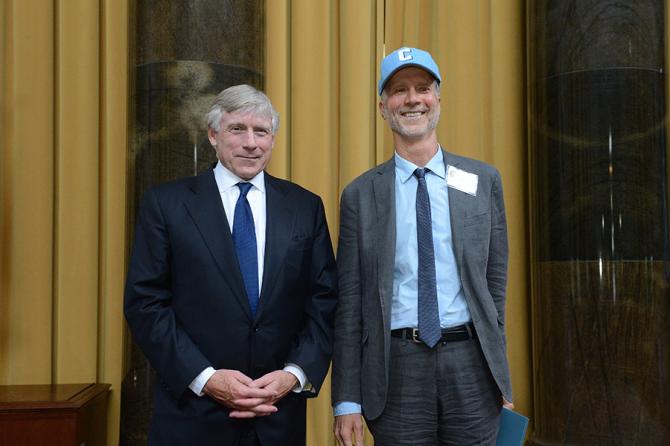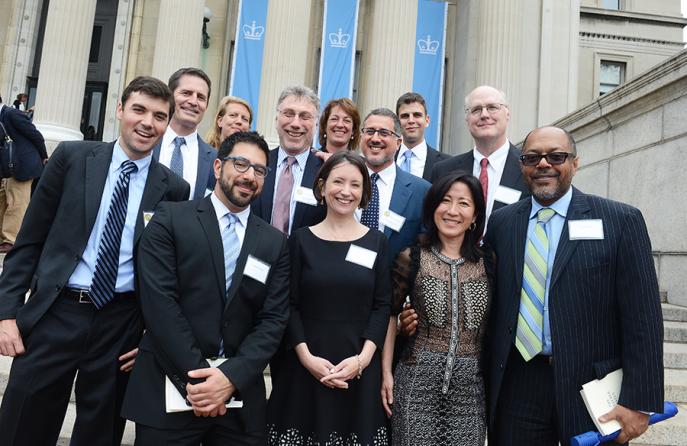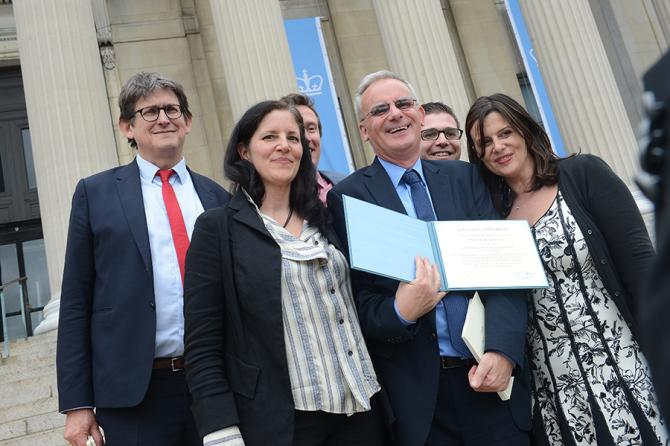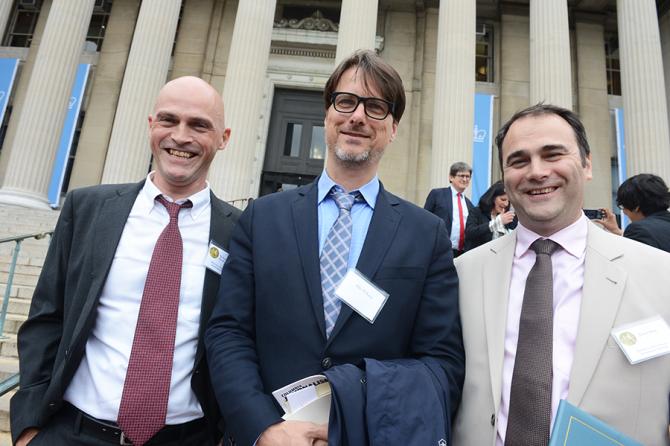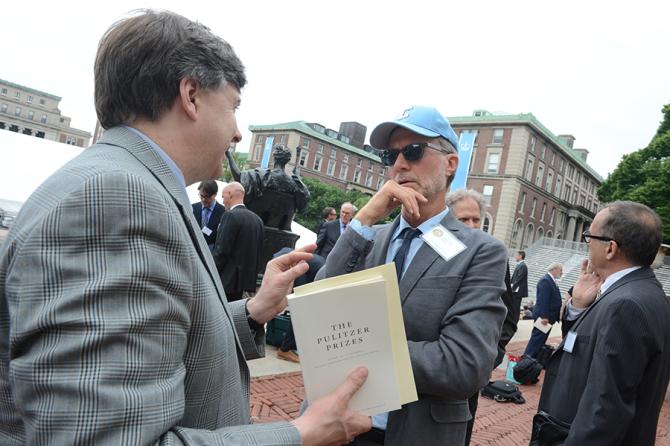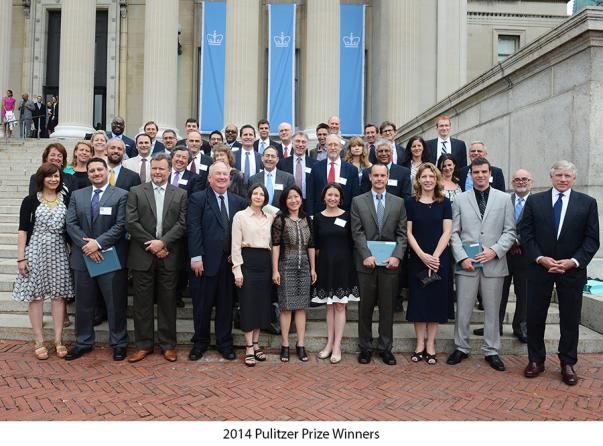2014 Pulitzer Prize Luncheon
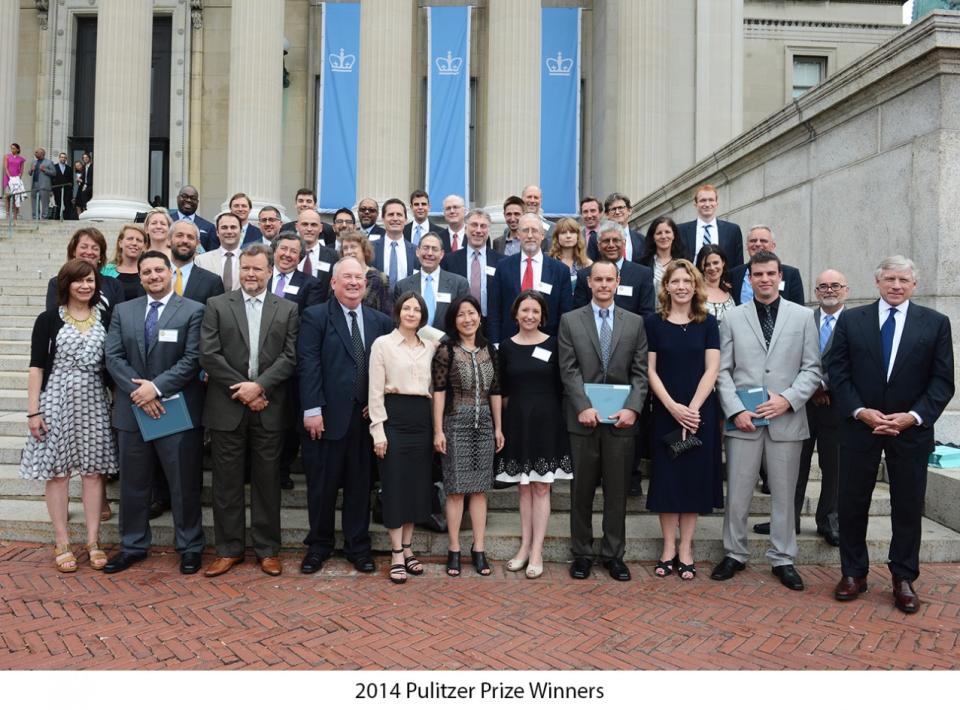
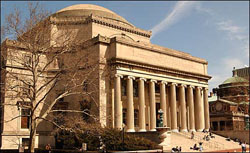
Low Library
Pulitzer Prizes are awarded at a luncheon ceremony at Columbia University in May, usually a full month after the winners have been announced. The annual luncheons began in 1984. Prior to that time Pulitzer Prize certificates, medals and checks were sent in the mail.
"Let Facts Be Submitted to a Candid World"
Remarks by Danielle Allen
Chair, The Pulitzer Prize Board, 2014-2015
Hello and welcome ….
What a special and historic opportunity this is—what a great privilege and honor—to celebrate all the remarkably gifted and passionate writers, reporters, artists, editors, and publishers filling this rotunda today. We’ve gathered here to celebrate you, one another, and our common democratic enterprise.
As we begin, though, I’d like to call your attention to a small, special book that is not otherwise on our agenda. It’s called Wild about Books. Fear not: we’re not creating an impromptu Pulitzer. I cite this sweet children’s book by Judy Sierra as a sort of parable: the animals at the zoo get a library and what a transformation it is. In no time at all, they become poets and novelists and some of them literal bookworms. Day to day, as their culture of reading grows, the joy crescendos. The grandest day in the zoo comes when the zookeepers award—get this—the "Zoolitzer" prizes. How do I know about the "Zoolitzers"? At home I’ve got a 4 year old and a 2 year old who love the book, and as far as they are concerned, that’s what Mama’s doing in New York today: doling out the Zoolitzers. And—let me tell you-- they are really excited for all of you . . . except they were hoping for selfies with hippos, giraffes, and crocodiles.
In all seriousness, who can think about kids without thinking about the future? In my case, being a political philosopher, I can’t think about the future without thinking about democracy and wondering what will become of it. Will we keep it? What does it take to build and sustain it? Joseph Pulitzer wondered about similar matters and the prizes he created are part of his attempt to contribute to a solution. In 1904, he wrote: "Our Republic and its press will rise or fall together."
For me the easiest way to get at the essence of democracy is to quote my favorite sentence from the Declaration of Independence. It’s not the sentence you’re expecting. Instead it’s this one: "[L]et facts be submitted to a candid world."
The authors of the Declaration began by asserting that "when in the course of human events, it becomes necessary for one people to dissolve the political bands which have connected them with another. . . a decent respect for the opinions of mankind requires that they should declare the causes which impel them to the separation."
The colonists wished to separate from Great Britain. They believed that they needed to give reasons. Fundamentally, their reason for revolution was this: "[that] the history of the present King of Great Britain is a history of repeated injuries and usurpations." After they made this allegation, they laid out the content of their investigative report—a long list of 18 grievances against the King. They introduced that list of grievances with those words I love, "To prove this, let Facts be submitted to a candid world."
But what is this idea of a candid world?
One reads it in the Declaration and feels nearly ready to dismiss it as the romantic fantasy of a now lost era. How unfamiliar it sounds to our twenty-first century ears when the writers of the Declaration declare themselves bound by a decent respect for the opinions of mankind to present the causes of their action.
When they say this, they call out to the world for judgment. They call out, therefore, to a world that they expect will recognize the value of judgment based on shared facts and reason-giving; they call out to a world that they believe has the capacity to judge their actions fairly.
This is the core idea of democracy: anybody and everybody can take part in analyzing and interpreting the shape and meaning of our world, divining the currents that are evident in the course of events. Anybody and everybody can use their findings together with good arguments to forge the collective decisions that will provide our best bridge to a decent future.
Yet in our current circumstances, this idea of "a candid world" must sound—as it must have sounded even to many of those who lived in those revolutionary times—hopelessly utopian.
Indeed, the writers of the Declaration hedged their claim. They qualified it. They wish to convey, they say, "a decent respect" for the opinions of mankind. They recognize that human beings have an inherent capacity for judgments about fairness, but to think that all people everywhere always judge fairly would be far-fetched, if not extravagant.
A decent respect is a modest but fair level of respect. A decent respect entails no more than expecting most people to judge fairly most of the time. As Abraham Lincoln may – or may not – have said: "You can fool all the people some of the time, and some of the people all the time, but you cannot fool all the people all the time."
Yet even with this qualification, the writers of the Declaration can still sound implausibly optimistic, if not naive. Can we still as a culture claim to be in possession of anything like that decent respect for the opinions of mankind?
In fact, I believe that everyone who is joined in this room today is in possession of such respect. If anything, I believe that is why you are here. The power of your work—an article, an essay, a photograph, a poem or a book— emanates from your philanthropic stance toward your audience, indeed, toward humankind. You believe that we, your readers, have the capacity to assimilate, to respond to, and to judge your picture of the world. You too call out to a candid world.
To address oneself to a candid world, however, is to do far more than to act on a belief in a core human capacity. The authors of the Declaration did not so much describe the world known to them as set a marker for an aspiration.
A candid world is achieved, not received. It is not a gift from on high but the work of minds self-consciously applied. In presenting their facts to a candid world 238 years ago, the writers of the Declaration sought to call such a world into being. They were making a demand of their audience – which was made up not just of inhabitants of the colonies but the global public too. They were asking this audience to achieve a new standard of political decision-making.
In the Declaration, they show their audience the rudiments of that activity: the declaration of principle, the consideration of facts relevant to those principles, the discernment of meaning in contemporary situations, the proposal of responses to those circumstances. All this work was to be done together with others and is far more relevant to all of us today than you might think. The goal was that public choices should be fairly forged in a crucible of public opinion.
Perhaps we will never achieve a truly candid world, but I remain convinced that these are still the elements necessary even to approximate it.
Can these ruminations on the Declaration help us understand Joseph Pulitzer’s aspirations and ambitions for the prizes he created? Pulitzer continued his 1904 thoughts on democracy thus: "An able, disinterested, public-spirited press, with trained intelligence to know the right and courage to do it, can preserve that public virtue without which popular government is a sham and a mockery. A cynical, mercenary, demagogic press will produce in time a people as base as itself. The power to mould the future of the Republic will be in the hands of the journalists of future generations."
How do we in the World Room, where the Pulitzer Board gathers, judge texts against Pulitzer’s high standard? Well, let’s take the Declaration as our sample. It pre-dates the prizes, of course, but can serve for an afternoon’s parlor game.
First off, we can confirm: the Declaration would have been eligible for a Pulitzer Prize. After all, it was published in newspapers throughout the fledgling country. How, then, would it have fared? I suppose that would depend on the category in which it was entered. It would probably not have done terribly well in "Investigative Reporting." The list of grievances against King George is comprehensive, it does rest on deep reporting, and it provides a compelling account of tyranny, but we never hear from the other side. What’s more, we can easily identify hyperbole in some of the grievances. The list was not really intended to be an investigative report. After all, as John Adams put it, "Posterity must hear a Story that shall make their Ears to Tingle."
Maybe "Editorial" would have been a better fit. There the test of excellence is "clearness of style, moral purpose, sound reasoning, and power to influence public opinion." The Declaration would surely have been a strong contender in that category.
As to its suitability for the "public service category," I leave that to you to judge.
Our deliberations in the World Room are the most intense, forthright, rigorous, and collegial of any I’ve ever been privileged to be part of. They have to be. Pulitzer has given us a demanding task. Our charge is to select those exemplary cases of journalistic, literary, and artistic excellence whose bright light helps us all pick out the path toward a healthy republic. In my eight years on the board, I have been overwhelmed by the intellectual power and moral integrity exhibited by our contenders. They give us reason to hope. Yet I also think it is time for anyone with a public audience to re-double her efforts, his efforts to cultivate a candid world.
As I now reflect on the future that lies before my children, I am struck above all that they were born in this early twenty-first century world, the post September 11th world. For them, there is no before and after, just this, what we know now with its ever present culture of security.
Ten days after September 11th, I was obliged to give a speech to the incoming freshman class at the University of Chicago.
With them, too, I invoked the Declaration of Independence, and its commitment to moving toward the future as if in a candid world. I celebrated the aspiration to ask the most of humankind. My concern at the time was that under pressure, in the face of terror, we might come to view our openness, our civil liberties and our commitment to educating all comers – what you might call our democratic magnanimity – as one reason for our vulnerability. I was concerned that we would need to work hard to preserve our core democratic commitments. At the time I wrote: "A democracy is not weak for opening itself to the world, nor for allowing its citizens great liberties. To the contrary. It is not merely that openness and rights make us who we are as democrats; they also make us strong, for they alone inspire the consent, allegiance, and commitment on which democratic power rests. Democratic authority rests on the state’s securing a way of life that we are glad to share, and on nothing else."
Now, in 2014, thirteen years later, I realize that the question is not whether we can preserve democratic commitments but rather, whether we can rebuild a commitment to a candid world almost from scratch. For all those who have been born in this world, who have never known another world, can we teach them, as the authors of the Declaration once did, what a commitment to a candid world looks like? Can we help them, I wonder, embrace this ideal afresh? How do we wrest a candid world from a morass of deception, self-promotion, and demagoguery, one that comes at us at all levels and that pervades our institutional structures, both in the nation and around the world?
As alarmist or even despondent as that might sound, I am not without hope, for we have methods which are tried and true: deep reporting in pursuit of the truth, effective writing in pursuit of insight and edification, and unflagging advocacy of a culture of reading, and not merely of watching and listening. Reading simply and unequivocally is the most efficient way to deepen and broaden understanding. I think Joseph Pulitzer was right when he said: "An able, disinterested, public-spirited press, with trained intelligence to know the right and courage to do it, can preserve that public virtue without which popular government is a sham and a mockery." To sit around the World Room table and to debate your work is to have one’s optimism restored.
All of you in this Rotunda wield with sublime mastery those tools of reporting and writing. You are, to a person, potent advocates for a culture of thoughtful reading. We are counting on you to build that candid world. We are counting on ourselves to emulate you, to follow along the path you’ve lit up.
And now, if you’ll pardon the expression, let’s give out those Zoolitzers. Over to you, President Bollinger.
(Photos by Eileen Barroso and Jake Young.)

